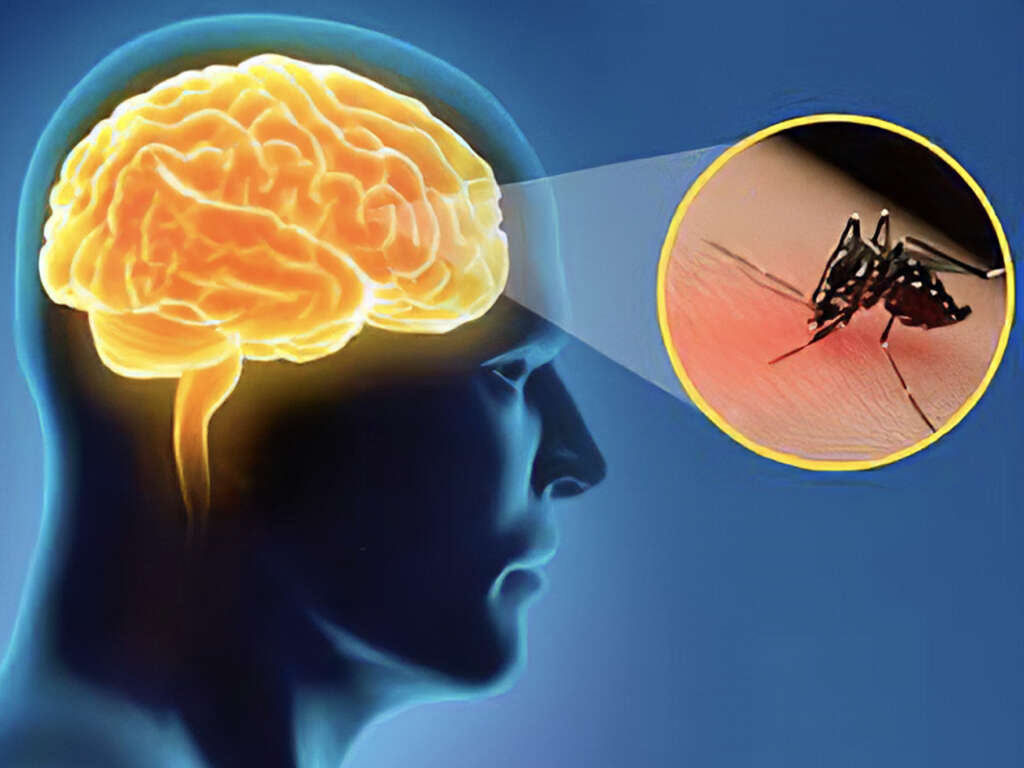10 Symptoms of Encephalitis
Our brains are constantly at work every single day. They help coordinate us, they allow us to think and solve problems and they also allow us to experience emotions. Should we begin to encounter problems with our brains, however, then it can lead to a serious negative impact on the quality of our lives.
One such condition is encephalitis, which is an inflammation of the brain which may be caused by a bacterial infection. This inflammation can put a lot of pressure on the brain and also cause damage to parts of the brain. Symptoms can range from being similar to the flu, to life-changing. While many forms of encephalitis are treatable, it is potentially deadly.
Symptom #1: Sleeping Difficulties
Sleep is very important to us. It helps our brain to process everything we have absorbed that day and helps us to feel fresh the following day. The sleep process is something that is instigated by the brain itself and, if all is not OK with the brain, then the process of sleeping may also be affected.
One symptom of encephalitis is difficulty in getting enough sleep, or good quality sleep. Even if the patient is able to sleep for as long as they usually would, they may not have slept deeply enough to really be refreshed. This can lead to the patient feeling tired even after they have just woken in the morning.
Symptom #2: Fatigue
A big brain is a very useful thing. It helps us to hunt, to protect ourselves and, in the cases of humans, it allows us to use science to manipulate the world around us. Despite all the many positives of having a big brain, though, it comes at a price.
A large brain needs a lot of energy to keep it nourished. This is not usually a problem for us but when something goes wrong, a lot of energy is needed to help fix the brain. This means that even more energy and nutrients are diverted away from the rest of the body and toward the brain. This leaves the rest of the body without the nutrition it needs, leaving us feeling fatigued.

Symptom #3: Headaches
For many of us, headaches are just a part of life. They can come for no apparent reason, although they do tend to occur when we are experiencing some stress. Usually, they go away before long and are bearable although unpleasant. Sometimes, though, a headache can be a sign of a potentially serious underlying problem.
Headaches are a common symptom of encephalitis. They differ from normal headaches in that they tend to last for longer, and they can be somewhat more painful. While it can be easy to overlook a headache as something quite normal, you should really speak with a doctor if the symptoms persist.
Symptom #4: Neck and Back Stiffness
The brain is connected to the spinal cord and together the brain and spinal cord comprise the central nervous system. Due to this connection, if the brain is experiencing difficulties, the spinal cord will likely be affected as well. Therefore, encephalitis not only effects the brain but the whole central nervous system.
Such symptoms will tend to manifest themselves as a stiffness of the neck and back. A lot of people might pass it off as just one of those things that happen as we get older, but persistent stiffness can be a cause for concern. If symptoms do persist, you should make an appointment to speak with a doctor.

Symptom #5: Memory Loss
We still have a lot to learn about how the brain works but we are beginning to get a better understanding of it. We have been able to identify how certain functions are affected when certain parts of the brain are damaged or affected in some other way. We also know that encephalitis can cause damage to the synapses and this can lead to memory loss and other problems.
Patients with encephalitis may find that they lose the ability to form new memories. This can be extremely confusing to them as it is difficult for them to understand where they are in terms of time. It has the potential to be devastating to the patient and to their families.
Symptom #6: Severe Mood Swings
Our moods are governed by numerous factors. One factor is the actions of other people around us and other circumstances such as finances and even the weather. Our mood can also be affected by physiological problems such as illnesses and complications that affect the central nervous system.
When encephalitis is affecting the brain, it can have a direct effect on our moods. Patients are likely to experience erratic swings in mood which they have little to no control over, and for no apparent reason. The mood swings can make them very difficult to work with and if you are experiencing these symptoms you should seek help from an expert.

Symptom #7: Tremors
Our muscles are controlled by messages that are sent from the brain. Sometimes these movements are consciously commanded by us, although a lot of the time they are subconscious. Sometimes, if there is a problem with the brain, the messages it sends can be confusing and it can result in erratic body movements.
Our ability to move begins in the brain. Encephalitis can cause damage to the areas of the brain that control our movement resulting in symptoms such as tremors. Muscles can twitch and contract randomly and completely beyond the patient’s control. Such tremors are an indication that something is very wrong with the central nervous system and should be treated as a medical emergency.
Symptom #8: Fever
Fevers are common symptoms and are caused by a wide range of illnesses and complications. They are one of our body’s most effective lines of defense against disease and they will usually pass in time with no harm being done. It is not usually something to be overly concerned about, although it should not be treated with complacency either.
A persistent fever is a symptom of encephalitis and could also be caused by a potentially serious condition. If you do have a fever that will not subside then you should arrange to see a doctor for a diagnosis. It might turn out to be something quite harmless, but it’s better to get it checked out in case.

Symptom #9: Seizures
Seizures are quite a dramatic symptom and something that is likely to cause considerable alarm. If you are experiencing seizures then it is a sure sign that there is something potentially very serious going on in the brain. Seizures are also risky because they can occur without warning and pose a very real threat of harm coming to the patient.
For people with encephalitis, seizures are a sign that the condition is reaching an advanced stage. Not only is there an immediate risk of harm, the seizures are also a sign that permanent brain damage is more likely to occur. Seizures should always be treated as a medical emergency.
Symptom #10: Hallucinations
Our brains are responsible for taking the information we collect from the world around us and translating it into a format that allows us to make sense of it. This system works very well and allows us to see, hear and smell everything around us. If it goes wrong, though, then we can see, hear and smell things that are just not there.
With encephalitis having a detrimental effect on the brain, the patient can begin to hallucinate. Hallucinations can be vivid and complex and can involve sight, sound and smell. Hallucinations in patients with encephalitis are a sign that the condition is at an advanced stage.










